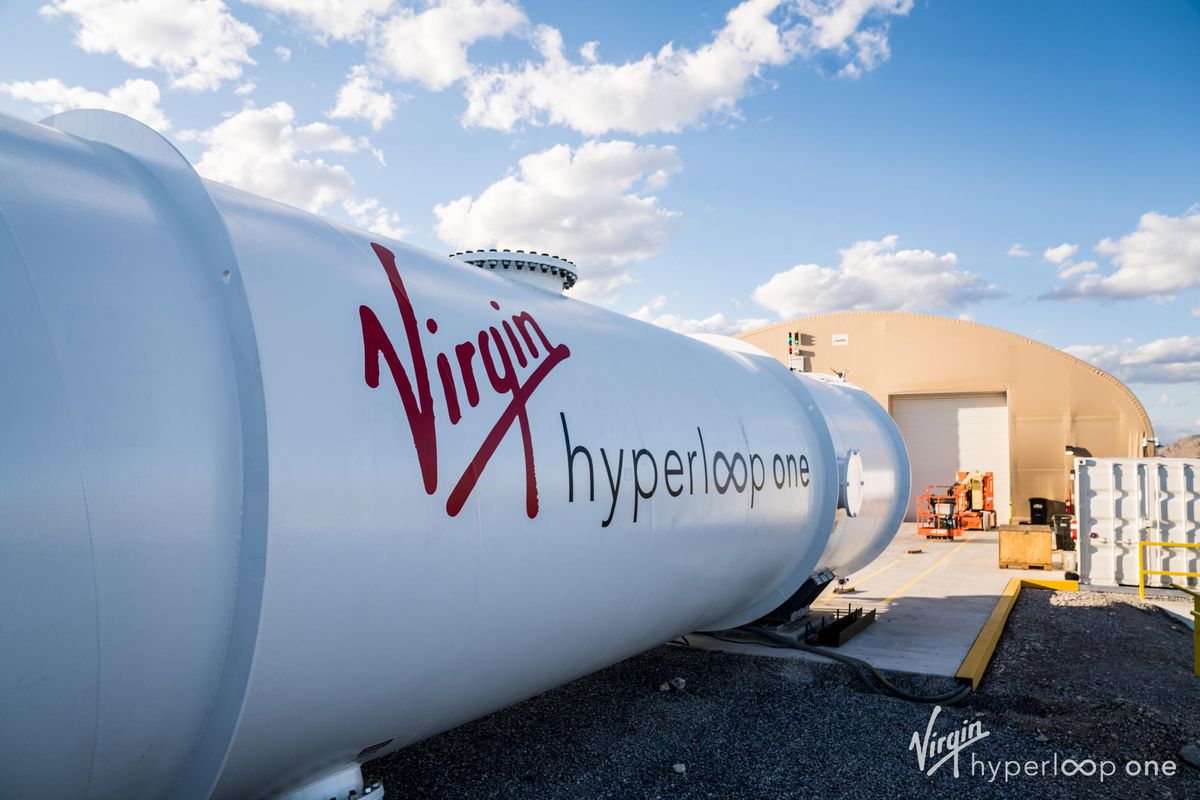The hyperloop seems like one of those things that’s always just “three years away.” Last year, the head honchos at Hyperloop One told The Verge they expect to see “working hyperloops around the world… by 2020.” Now here comes Richard Branson, chairman of the recently rebranded Virgin Hyperloop One, to push that deadline to 2021, the year he believes the hyperloop will be ready for human passengers.
All these deadlines should be taken with a giant grain of salt. Ground has yet to be broken on any full-scale hyperloops anywhere in the world. We have a handful of test sites and nothing more. No governments have signed contracts. The companies that are chasing the hyperloop dream are strapped for cash and a bit scandal worn. And the amount of money it would take to build a real working hyperloop remains amorphous and difficult to pin down — but is most certainly very huge.
If hyperloop granddaddy Elon Musk has taught us anything, it’s that deadlines are just a funny sequence of numbers that we drop in earnings calls but don’t actually mean anything. Musk was the guy who first came up with the hyperloop as an open source project in 2013, and has since re-embraced it as a viable commercial operation despite probably needing to devote all his attention to his financially unstable electric car company.

Now fellow billionaire Branson and others are running with the idea, too, and while the technology looks cool and seems to work, the likelihood of a real, working hyperloop that’s safe enough for humans still seems a little further out than just three years.
Branson insists this isn’t a long-term dream. “We’re talking about two to three years away, not many years away,” he told CNBC last weekend. “My children and grandchildren are going to want the same things as I’m going to want — they’re going to want to get to places quicker.”
The occasion for Branson’s interview was the creation of a new entity, DP World Cargospeed, a collaboration between Virgin Hyperloop One and Dubai’s DP World that would launch an ultra-fast system for shipping goods. DP World Cargospeed will aim to transport shipments of goods at speeds of up to 620 mph and link to existing roads, rail, and air infrastructure. Branson didn’t specify when this system would be in place, but you can probably guess what he’d say if asked.
Dubai is increasingly looking like the city most likely to play host to the world’s first fully operational hyperloop, thanks to the city’s general love of anything futuristic and difficult to scale. And the announcement was further evidence of Virgin Hyperloop One solidifying its ties to Dubai, a major hub for cargo. DP World is the company’s biggest investor, and Virgin Hyperloop One’s fate hinges on getting a green light from the Emirate.
https://www.theverge.com/2018/4/30/17302208/virgin-hyperloop-one-richard-branson-three-years

